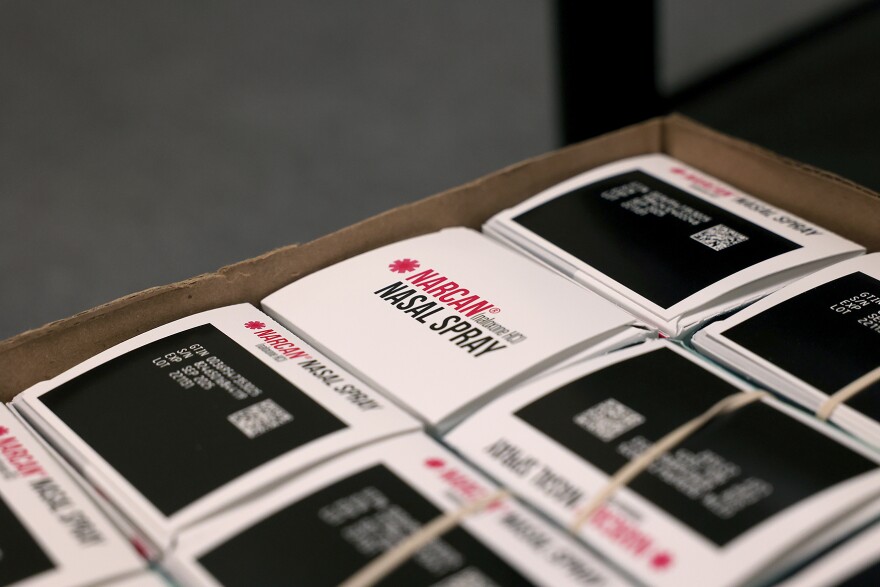New research from the University of Missouri St. Louis’s Addiction Science team found a 26% drop in overdoses statewide and a 36% decrease in opioid overdoses.
The data covered overdose deaths in 2024 and confirmed that nearly every region of Missouri experienced a decrease.
Director of Addiction Science Rachel Winograd said this decrease can be attributed to a handful of factors including distribution of naloxone products.
Naloxone is a drug that can undo the effects of an opioid overdose when administered.
In the Addiction Science team’s Annual Naloxone Report for Missouri, they found that every county in Missouri received naloxone products in the 2025 fiscal year. This nearly doubled the amount given out the year prior.
Winograd says naloxone distribution has been important to the decrease of opioid overdoses, but many of the funding sources paying for the kits are temporary.
“No one can be entirely sure what a funding future looks like while we can also be sturdy and steadfast that this money is lifesaving, and that if it went away people would die,” Winograd said.
Heather Harlan, the facilitator of the Boone County Overdose Response Coalition, has been one of the voices in Boone County championing the distribution and use of naloxone products like Narcan.
Harlan said that while the coalition is ecstatic about the decrease in overdose deaths, they cannot slow down their efforts to raise awareness and provide life-saving aid.
“This is not a time to stop, this is a time to capitalize on what's been working and that's awareness and education and distributing naloxone,” Harlan said.
The coalition is planning to continue their current efforts while exploring new tactics.
They have been holding monthly “Save a Life” events across Boone County for the past three years. These events provide naloxone products and related community health information.
Moving forward, the coalition also aims to set up self-serve naloxone boxes. Operating like little libraries, the boxes will be open 24 hours a day, allowing people access to free naloxone products.
Harlan said it is important to their mission that the boxes are set up in rural communities as well as the Columbia area.






